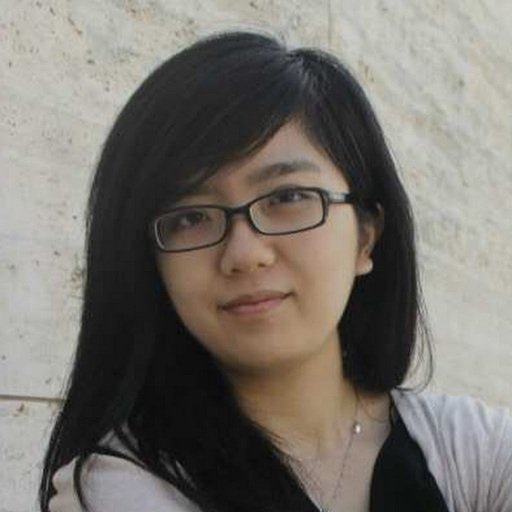PiTech News
Welcoming Kate Nicholson, PiTech’s new Director of Programs and Partnerships, Joining Us From Civic Technology Nonprofit, BetaNYC
The PiTech Initiative is thrilled to welcome Kate Nicholson, PiTech’s new Director of Programs and Partnerships!
“Public interest technology (PIT) is a broad field, united by the goal of prioritizing community needs in technological processes and development to advance society. I look forward to creating pathways for students and the Cornell Tech community to demonstrate that commitments to PIT can transform lives and address complex societal challenges here in New York City.”
Note from PiTech Initiative Director, Malgosia Rejniak
Seeing the finalized cohort of Siegel PiTech PhD Impact Fellows has been the most rewarding aspect of my work as PiTech Initiative Director. Much thoughtful curation goes into matching students with organizations, both from the PiTech side, as well as on the part of our wonderful partners, to align students’ interests and skills and organizations’ specific technical explorations. I’m very excited to announce the Fellows and their hosts for Summer 2024!
PiTech PhD Impact Fellowship - by the Numbers
As we finalize the 2024 summer cohort of Siegel PiTech PhD Impact Fellows, we’d like to look back and reflect on the Fellowship since its pilot in 2021 and share some key facts and stats on how we’ve evolved.
Welcoming Associate Professor Sera Linardi as the 2024 Siegel PiTech Faculty Impact Fellow
Sera is an Associate Professor of Economics at the Graduate School of Public and International Affairs in the University of Pittsburgh, where she founded the Center for Analytical Approaches for Social Innovation (CAASI), an incubator of community-co-created social justice data projects.
Communicating weather data when the stakes are high
Highlighting the shortcomings exposed by Hurricane Ida in 2021, James underscores the need for accurate, localized weather information. His solution, developed during his tenure as a PiTech PhD Impact Fellow with New York City Emergency Management (NYCEM), is an innovative online dashboard. This tool, created using R and Shiny software, integrates data from the National Weather Service into an interactive map, offering real-time and predictive weather insights for each neighborhood in New York. This advancement not only streamlines the data consolidation process but also enhances decision-making capabilities for city officials and emergency responders. James' work represents a significant step towards improving urban response to hazardous weather, though he notes the necessity for further enhancements to the system.
Innovating Dental Experiences with AR for Autism
The organization YAI, who has been dedicated to supporting the intellectual and developmental disabilities (I/DD) community in different ways for decades, seeks to reshape the dental experience for the I/DD community, particularly for those with autism. With the increasing accessibility of AR/VR technology, and its unique capability to enable different interactions within physical spaces, we're confronted with an intriguing challenge: Can mixed reality be the antidote to SPD challenges in current dental settings? Can we envision a new future of dental visits for those with I/DD through the use of AR/VR?
Supporting Block Party & NYC Community Boards )
Block Party, a New York City-centered volunteer-supported organization, is working to built a tool to automatically summarize the text of community board meetings using speech-to-text efforts of YouTube, Artificial Intelligence (AI), and Natural Language Processing (NLP) and to automatically disseminate the resulting summary in the free Block Party newsletter mailing list for each community board. During my tenure as a PiTech Impact Fellow, I was able to leverage my research and expertise in NLP in order to support the meeting summarization process. I worked closely with Sarah, brainstorming ways we might envision a new summarization process utilizing LLMs.
Efficient, but Equitable Access to Information
The Mayor’s Office of People with Disabilities (MOPD) charioted the effort of creating an accessible chatbot for the NYC’s government website. Chatbots and large language models (LLMs) have emerged as promising technologies to sift through enormous amounts of text, as well as infer information to respond to questions. I sought out to explore these possibilities with the MOPD as a Siegel Family Endowment PiTech PhD Impact Fellow in summer 2023 which later required partnering with the Office of Technology & Innovation (OTI), and other city agencies.
Re-designing Medical Alerts for Nurses at NYC H+H
In an effort to reclaim provider capacity, increase patient safety, and reduce alert fatigue, a team of health informatics experts was established at NYC H+H in 2020. This working group routinely assesses new and past BPAs, and modifies or removes any that are found to be unhelpful.
Enhancing Permission Slip, a digital data privacy assistant by Consumer Reports: Unveiling Consumer Insights and Ensuring Robust Validation
This study delved into the factors that influence consumer decisions around personal data management, inquired about the specific companies and data types that trigger high levels of concern, and sought to discern consumers' expectations for privacy tools.
Workforce Modelling for Ithaca’s 2030 Building Electrification Goal
As a Siegel PiTech PhD Impact Fellow, I collaborated closely with the City of Ithaca and partnered with BlocPower, a climate technology company, over the summer to develop a web application. The web application was designed to aid stakeholders, not only within Ithaca but across various municipalities in New York state, in estimating the quarterly workforce increase required to achieve the goal of complete building electrification by 2030.




















